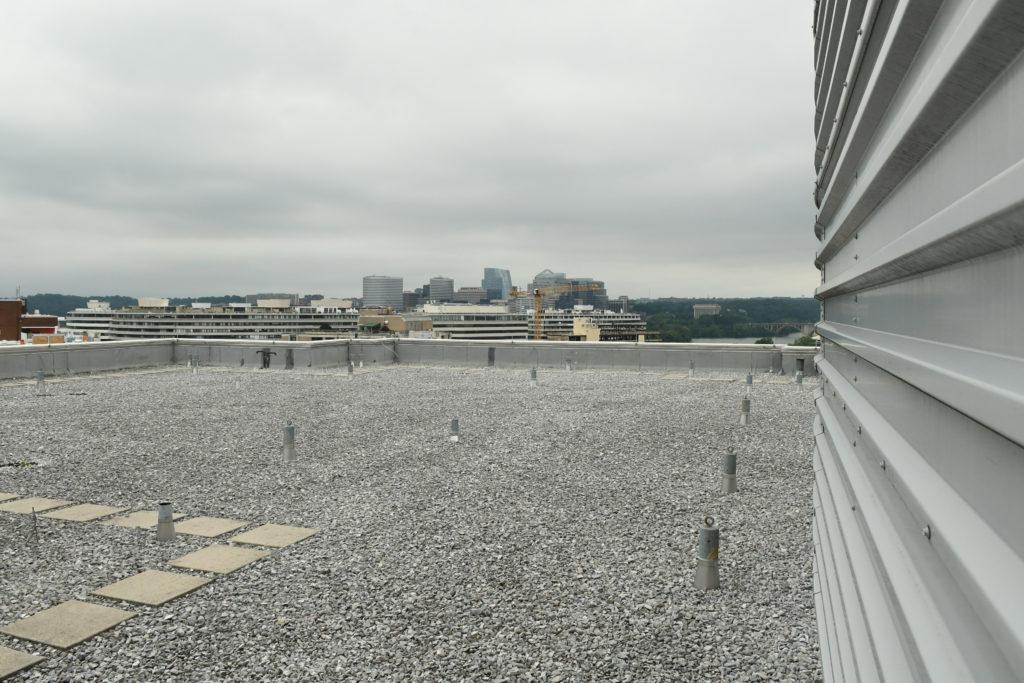Updated: July 11, 2018 at 11:11 a.m.
By next spring, GW Hospital will have a new rooftop feature: a helipad.
Roughly six years after hospital officials began working on a rooftop helipad proposal, Mayor Muriel Bowser signed a bill Tuesday permitting the construction of a helipad atop the hospital, according to a GW Hospital release. Her signature was the final hurdle for the project to overcome after the D.C. Council unanimously passed multiple measures last month clearing the way for the helipad’s construction on the south side of the hospital above the Foggy Bottom Metro exit.
Construction is expected to begin this year and will be completed in spring 2019, according to the release.
“GW Hospital’s helipad will expand access to its lifesaving critical care services including its Level I trauma care and comprehensive stroke care, ensuring this care is available to more individuals across the region,” the release states.
The helipad was first introduced to the D.C. Council in November, about a month after a local neighborhood governing group narrowly approved the project following months of negotiation. Some Foggy Bottom residents had initially opposed the initiative, citing concerns about increased noise levels in the neighborhood.
But the project had also garnered widespread support on campus, and both the Student Association and the Residence Hall Association submitted written testimony to the D.C. Council in April supporting the initiative.
Babak Sarani, the director of trauma and acute care surgery at the hospital, said the helipad will reduce unnecessary deaths across the region since GW Hospital is one of only a few top-ranked trauma centers in D.C.
“For trauma, stroke, heart attack and other critically ill patients, it is pivotal that they receive care as quickly as possible in order to have the best outcome,” Sarani said in the release. “This helipad will assist us providing this emergent, high level of care to all who need it.”
Kimberly Russo, the CEO and managing director of GW Hospital, said in the release that the helipad will be a “vital enhancement in healthcare access to the D.C. area.”





